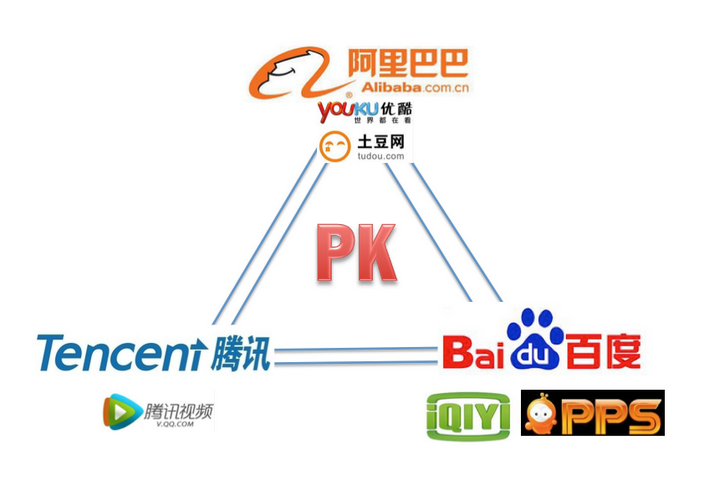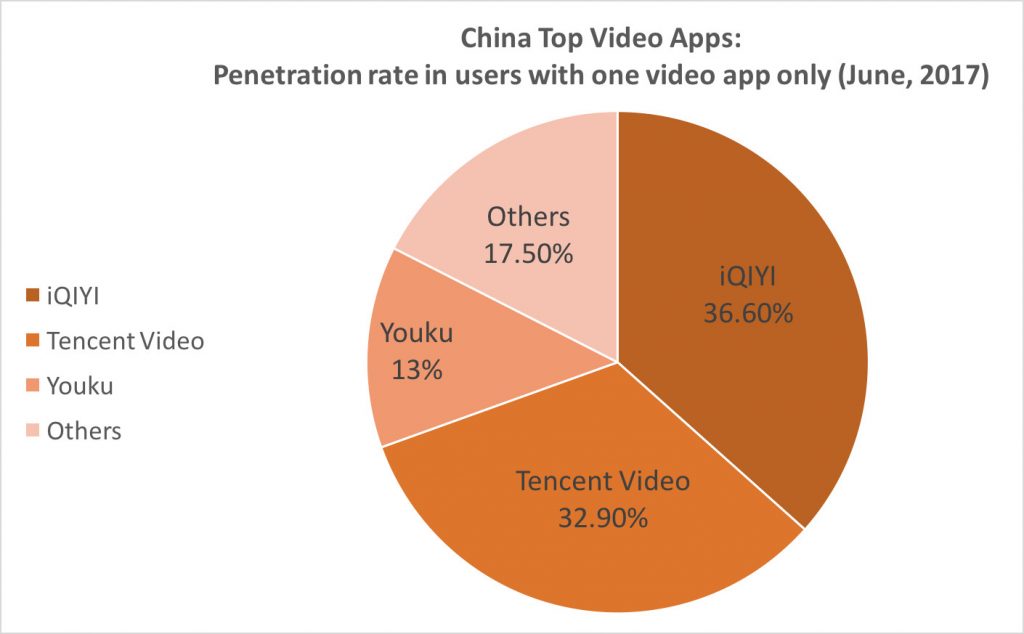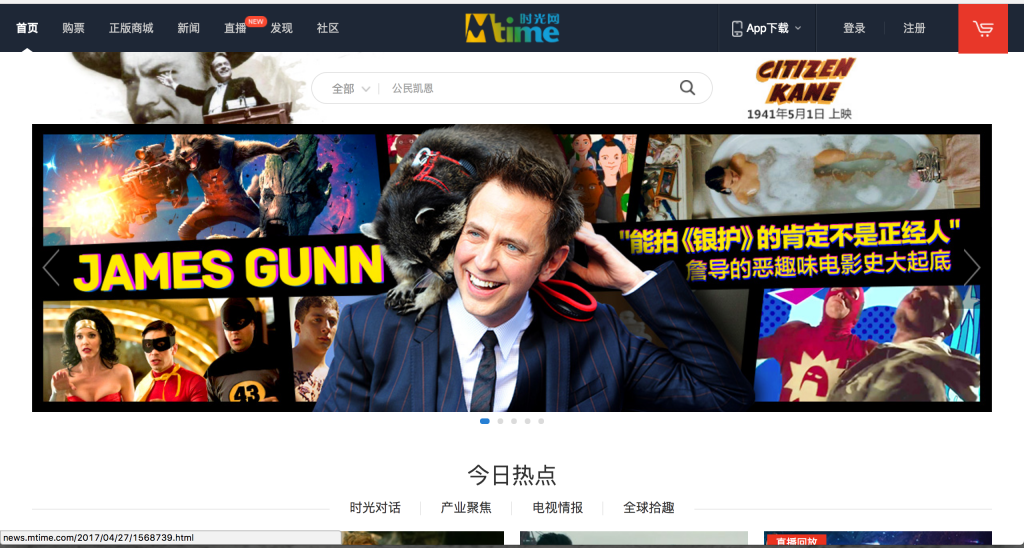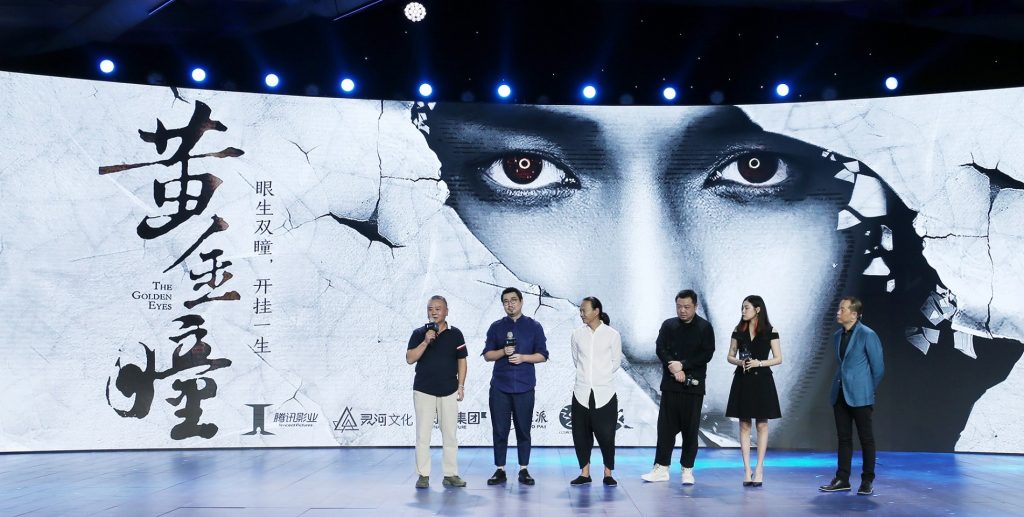Chinese video websites have rolled up their sleeves to make original content, from mainstream shows to the more niched genres of anime and documentaries.

‘The Rap of China’, produced and streamed exclusively by the video website iQIYI turned into 2.6 billion views.
“When it comes to quality of reality shows, internet companies are really closing in on or have even surpassed their TV counterparts,” Chulin Luo, who has been on the production crew of several Chinese blockbuster TV shows, recently told TechNode.
That sentiment reflects a new normal in the video production industry. Chinese video sites have rolled up their sleeves to make original content—from mainstream sitcoms and reality shows to the more niched genres of anime and documentaries. This past summer, millions of young Chinese spent their Saturdays rallying for their favorite rappers from The Rap of China. Unlike other smash hit shows that preceded it, The Rap of China (中国有嘻哈) takes on a culture that used to be largely underground in the country. Moreover, it’s produced and streamed exclusively by iQIYI, the online video platform owned by Chinese search giant Baidu. The craze for the rap reality show then turned into 2.6 billion views for the 12 episodes and 6.8 billion views of the hashtag for The Rap of China on Weibo (in Chinese), iQIYI claims.
Big Production
Gone is the Youtube model of traffic-driven user-generated content that makes money from advertising; Chinese video giants are now going all-in to make expensive, producer-driven content. iQIYI, for example, shelled out over 250 million RMB (about $38 million) for The Rap of China and nabbed two highly respected TV veterans: Chen Wei, who produced the popular singing contest The Voice of China at Zhejiang Television, and Che Che, who directed So You Think You Can Dance China for Star China Media.
Baidu is not the only mover and shaker. Like most other markets, the battle in China’s online video space has become a proxy war for the internet trinity of BAT—Baidu, Alibaba, and Tencent.

In 2015, Tencent founded Penguin Pictures to ramp up original programming. This year, the social media and gaming giant is expected to produce eight times (in Chinese) as much original video content as it did in 2016, Sun Zhonghuai, CEO of Penguin Pictures said recently at an industry conference. Youku and Tudou, which merged in 2012 and later were acquired by Alibaba in April 2016, have laid out steps to seize full control of production and broadcasting at its strategy meeting. Across cyberspace, the number of premium TV dramas rose from 36 in 2015 to 239 in 2016 (in Chinese) according to EntGroup, a third-party research company focusing on media. Both Tencent Video and iQIYI produced over 30 premium dramas last year, surpassing Netflix which posted 29.
Together the three giants attract over 80% of Chinese consumers who use only one mobile video app (many have more than one), based on QuestMobile data (in Chinese) from June. Tencent Video and iQIYI are competing neck-and-neck. While iQIYI leads with 36.6% penetration rate among users with one video app, Tencent Video claims 104 million mobile daily active users (DAU), compared to iQIYI’s 78 million, for the first six months of 2017, says data company Push (in Chinese). Youku trailed behind at 36 million DAU.

Data source: QuestMobile, June 2017
All-in for Original Content
Video licensing fees in China have gotten too expensive, even for China’s well-oiled internet juggernauts. My Own Swordsman (武林外传), one of the most watched TV series from mid-2000, was licensed at 100k RMB for 80 episodes. Today, one episode of an in-demand series like Legend of Mi Yue (芈月传) can cost up to 10 million RMB—up 8,000 times from a decade ago. Like their Western counterpart Netflix, all three major Chinese video sites continue to burn cash for content and operate at a loss.
“We are lucky enough to have backings from internet giants like the BAT,” Han Zhijie, Vice President of Penguin Pictures told Yicai (in Chinese). “Regular video platforms can hardly afford such high costs.”
By bringing production in-house, however, internet companies gain control over how the content is made and used. For example, shows and series—including those produced by TV networks—now come in fewer episodes and are released over a longer cycle. In doing so producers can leverage viewer data to fine tune the upcoming narrative and elongate the buzz. Because content is now exclusive, streaming platforms can charge users for value-added services like an exclusive premiere or ad-free experience. And it’s getting ever easier to lure video users to pay with their growing respect for copyright and the advance of mobile payment. EntGroup estimates that paying video subscribers in China will hit 100 million by this year.
Most appealing is the commercial possibility of intellectual property: from advertising, paid subscriptions, publishing, distribution, licensing, gaming, to e-commerce. The Rap of China alone has derived over 200 distinct products, local media is reporting.
“Any online video sites who want to purchase a top reality show from a top TV station needs at least 100 million RMB in their pocket, and this 100 million RMB only gets you through three months. But if I use that same amount of money to make The Rap of China, it becomes our own IP!” Chen Wei said in an interview with local media. Indeed, “IP” has become a new buzzword for China’s content providers: its industry value surged from 295 billion RMB in 2014 to 562 billion in 2016, according to Creation Venture, a Shenzhen based venture firm with a focus on media and entertainment.
On the creativity level, internet productions enjoy more freedom than traditional TV networks, at least for now.
“China’s TV networks are run by the state,” says Luo. “That means every second of content must be approved by SAPPRFT [The State Administration of Press, Publication, Radio, Film and Television]. The internet, on the other hand, has way too much content to be monitored at that minuscule level.”
Censors have, however, already tightened the grip on digital content as digital viewership expands. By this June 75.2% of Chinese netizens were watching videos online. The highly anticipated internet reality show Who’s the Murderer (明星大侦探) was called off by regulators after broadcasting two episodes in September.
“I watched the first episode and to be honest, I didn’t see anything sensitive,” Luo says. That type of arbitrary crackdown is not uncommon in China. Ahead of the twice-a-decade party reshuffle, Chinese regulators have ordered strict measures on the internet industry, from holding WeChat group owners accountable to enforcing real-name registration across social media networks.
Burning Money
Despite its steady growth, iQIYI has been seen as a drain on Baidu’s balance sheet, one that has paled in comparison to Alibaba and Tencent in recent years. Last February, Baidu founder Robin Li and iQIYI founder Gong Yu proposed a sell-off for the video company at $2.8 billion, but the buyout collapsed and was criticized by Baidu investors as “too low.” In February, the video giant raised $1.5 billion from its issue of convertible note—the largest fundraising for an online video business in the history of China. Most recently, a source told Bloomberg that the site is on course for an IPO in the US as early as next year. The series of moves suggest that cash burn might have to continue for many years for China’s major video sites.
Upping the ante in original content seems, at least in the long term, a more financially viable move. iQIYI has already had some success with The Rap of China. The show is around the break-even mark, a source that prefers to remain anonymous told TechNode, with most of the revenue coming from big advertisers wooing the show’s young audience. Shortly after the show ended in September, Tencent Video announced hitting 43 million paid subscribers, topping the rank of online video platforms in China, the company claims. Sun Zhonghuai hailed the quality of content, rather than the quantity, as its competitive advantage at this stage of the video arm race. To win the game, Chinese video giants often speak of Disney as the Holy Grail: make money by being an intellectual property generator above all else.
— This article originally appeared on TechNode.








